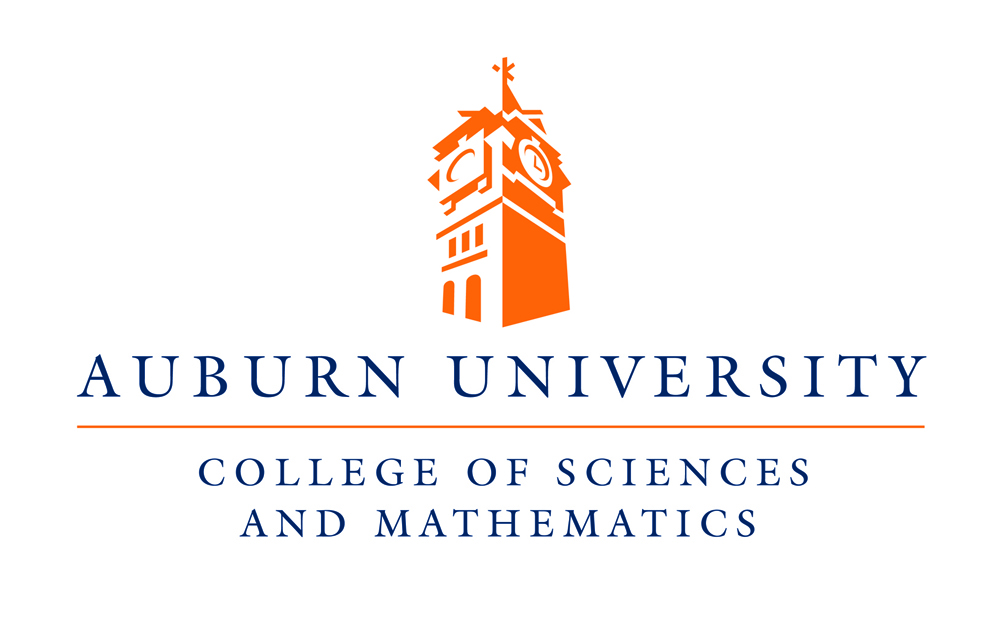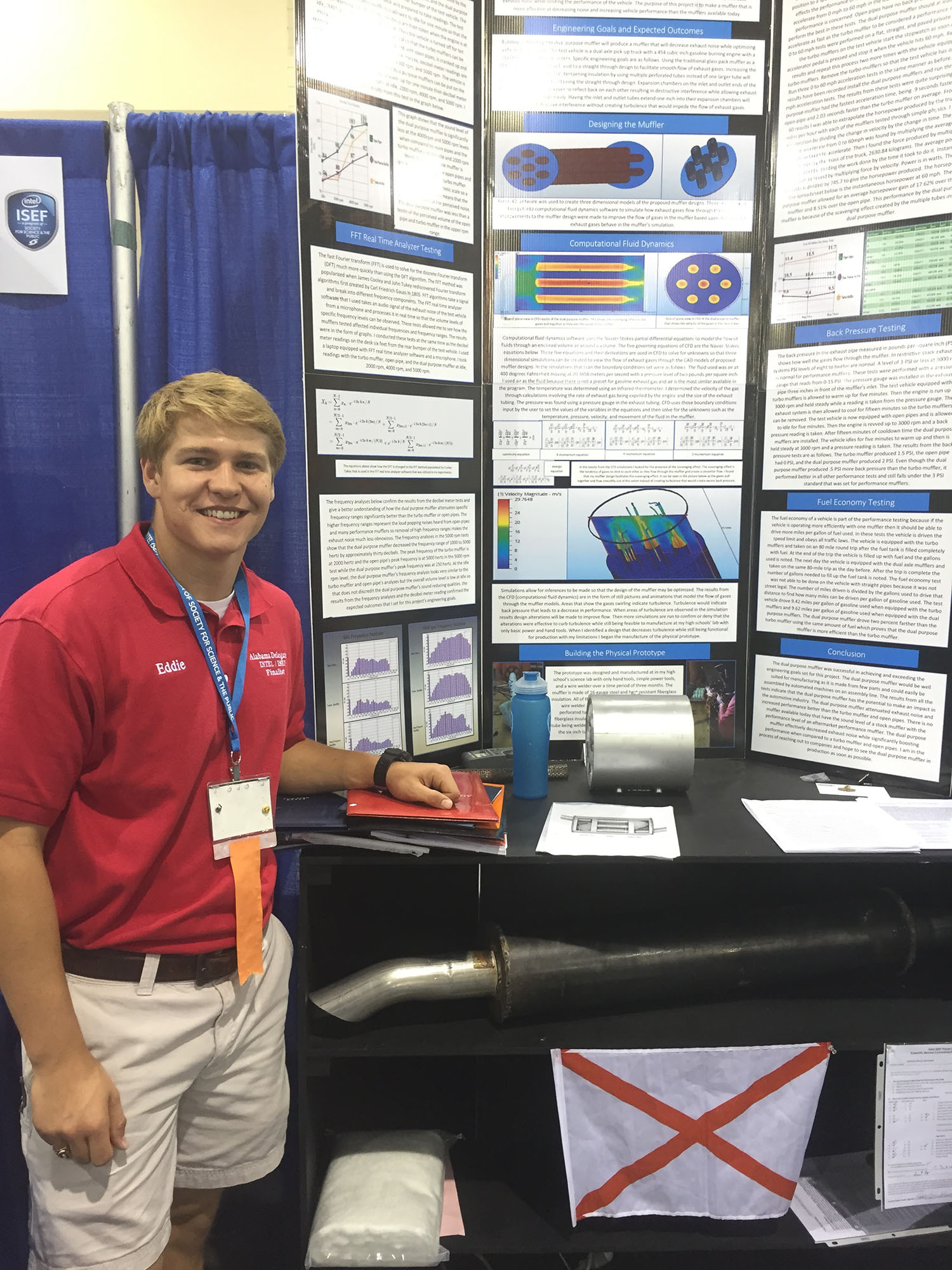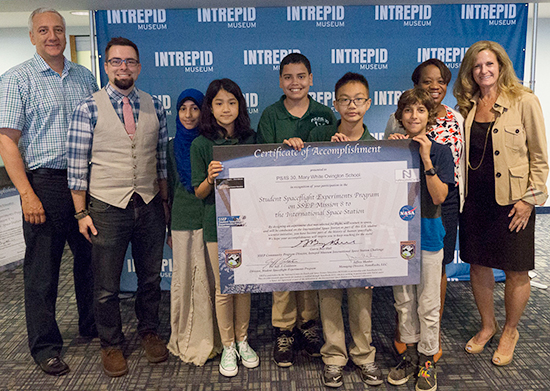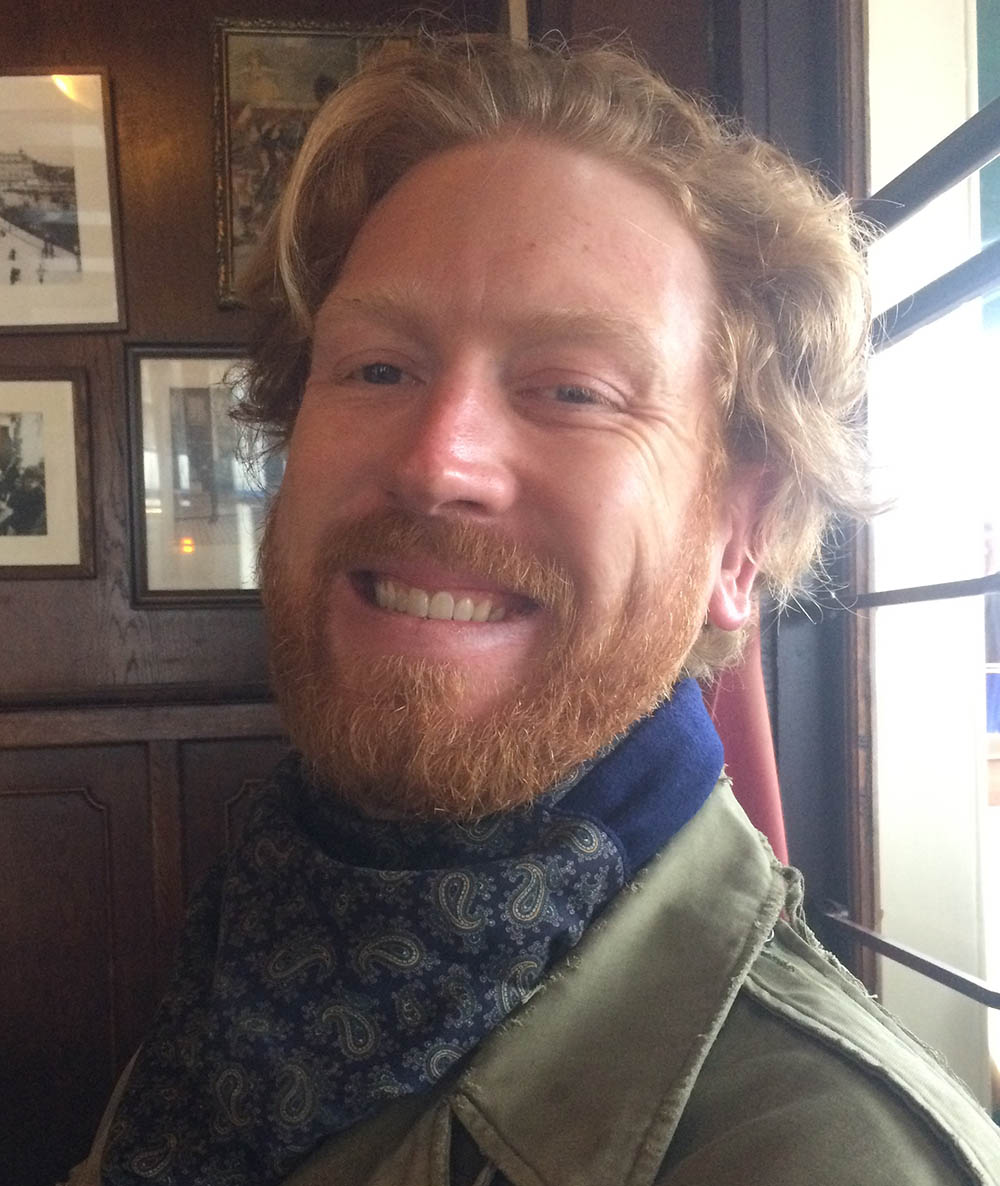
|
|
COSAM faculty, department honored with 2016 Faculty Awards
Five faculty members and one department from the College of Sciences and Mathematics were named recipients of Auburn University’s 2016 Faculty Awards.
The awards recognize some of the institution’s most innovative teachers, researchers and scholars for their unique and distinguished contributions to the university’s mission.
Presented annually, the Faculty Awards honor individuals and groups of faculty for excellence in teaching, research and outreach. Following a competitive review process, recipients are chosen by selection committees comprised of faculty, staff, students and alumni. Award winners will be recognized at the annual Faculty Awards Ceremony hosted by the Office of the Provost in early 2017.
“This year’s recipients were selected from an outstanding group of nominated faculty,” said Timothy Boosinger, provost and vice president for academic affairs. “Our awards not only represent the exceptional contributions of these faculty members to Auburn’s mission, but also illustrate their extraordinary service and dedication to the University.”
Faculty Award recipients from COSAM are listed below:
Alumni Professors
The Alumni Professorship program recognizes tenured faculty members with direct responsibilities in two or more of the institutional missions of instruction, research and outreach. Faculty selected to receive a professorship must have demonstrated exceptionally meritorious performance, distinctive competence, and potential for continued high productivity and excellence.
- Stephen Dobson, professor
- Department of Biological Sciences, College of Sciences and Mathematics
Creative Research and Scholarship Award
The Creative Research and Scholarship Award recognizes faculty members who have distinguished themselves through research, scholarly works and creative contributions among the categories of fine arts, liberal arts, business, social/human sciences and sciences, biomedical sciences, engineering and agriculture.
- Michael Pindzola, professor
- Department of Physics, College of Sciences and Mathematics
- Sciences, Medical Sciences, Engineering and Agriculture category
Departmental Award for Excellence in Education
The Auburn University Departmental Award for Excellence in Education was created in 2013 and is administered on behalf of the Office of the Provost through the university’s Biggio Center and the University Senate Teaching Effectiveness Committee. The award recognizes the efforts of departmental faculty for their commitment to improving education at both the undergraduate and graduate level.
Distinguished Graduate Faculty Lectureship
The Distinguished Graduate Faculty Lectureship Award is jointly sponsored by the Auburn Alumni Association and the Graduate School and is awarded to a faculty member on the basis of excellence in research.
- Stewart Schneller, professor and former dean
- Department of Chemistry and Biochemistry, College of Sciences and Mathematics
The Gerald and Emily Leischuck Endowed Presidential Awards for Excellence in Teaching
Gerald and Emily Leischuck, 1964 graduates and retired Auburn University administrators, created the Endowed Presidential Awards for Excellence in Teaching in 2005 to recognize two full-time, tenured faculty members who have demonstrated effective and innovative teaching methods, along with a continuing commitment to student success through advising and mentoring.
- Bob Boyd, professor
- Department of Biological Sciences, College of Sciences and Mathematics
Provost Award for Faculty Excellence in Undergraduate Research Mentoring
Established in 2012, the award recognizes faculty who demonstrate a strong commitment to undergraduate research, whose efforts support Auburn students interested in careers in research and creative works, and who have demonstrated outstanding service to students.
- Anne Gorden, associate professor
- Department of Chemistry and Biochemistry, College of Sciences and Mathematics
More information about the awards, including a list of recipients from previous years, can be found on the Auburn University Faculty Awards website. For a full list of this year’s award winners, click here.
|
|
High school students competing in COSAM Outreach program win international awards

Students who competed in the Greater East Alabama Regional Science and Engineering Fair, or GEARSEF, received honors at the Intel International Science and Engineering Fair, the world’s largest pre-college science competition.
Edmond Strickland, of South Montgomery Academy, won 2nd place in the engineering division. Alexis Jones, of Auburn High School, won 3rd place in the biochemistry division.
Hannah James, of Wetumpka High School, also won a top award for her research involving juvenile idiopathic arthritis. She plans to attend Auburn University in the fall.
GEARSEF is a regional affiliate fair of the Intel International Science and Engineering Fair. Intel ISEF annually provides a forum for millions of students from more than 50 countries, regions and territories to showcase their independent research. GEARSEF hosts middle and high school students from 19 counties in central and southeast Alabama. The top students in each category and division earn the chance to compete at the Alabama State Science and Engineering Fair. Several exceptional high school students from GEARSEF advanced to the Intel ISEF to compete against the top 1,500 students in the world for nearly $4 million in prizes and scholarships.
For more information on GEARSEF and other COSAM Outreach programs, visit the website.
|
|
COSAM alumnus leads sixth grade team to victory during the first Intrepid International Space Station Challenge

Nathan Tubbs (pictured second from left), marine biology ’05, is a middle school teacher in Brooklyn, NY, whose students won the first Intrepid International Space Station Challenge, an experiment design competition created by the Intrepid Sea, Air & Space Museum, in partnership with the Student Spaceflight Experiments Program (SSEP) and the Ramon Foundation. Tubbs’ team took first place among the 42 competing teams from five New York City public schools.
The team designed an experiment that explores how microgravity affects the germination of pot mum seeds. The experiment will be sent to the ISS on SSEP Mission 8 in the fall. An astronaut aboard the ISS will conduct the experiment. After approximately six weeks in orbit, the experiment will be returned safely to Earth for data collection and analysis.
All student experiments were designed to work within an existing, flight-certified research mini-laboratory designed by NanoRacks, LLC, and provided through SSEP. In order to give students an experience comparable to the reality of the scientific field, the competition mirrored how professional researchers formally compete to obtain limited research assets. Each team, composed of three to five students, proposed an experiment designed to assess the impact of microgravity on a physical, chemical or biological system in any number of diverse fields, including seed germination, crystal growth, physiology and life cycles of microorganisms, cell biology and growth, food studies, or micro-aquatic life.
As his students worked on designing their experiments, Tubbs sought the guidance of Bob Boyd, professor in the Department of Biological Sciences and former professor of Tubbs, along with other Auburn faculty members. Tubbs’ team was commended for consulting with the researchers and professors.
Tubbs is working to make it possible for the students to attend the launch in Cape Canaveral on June 24. For more information on Tubbs and his sixth grade class, go to this link: www.mrtubbs.info.
|
|
Alumni Update: Travis Bray, chemistry ’08

Travis Bray is the founder and executive director of Hereditary Colon Cancer Foundation. He is a colon cancer “previvor,” surviving a predisposition to cancer due to a hereditary mutation. At age 15, and after losing his father and grandfather to Familial Adenomatous Polyposis, Bray had his colon removed to prevent a 100-percent risk of cancer. After working for Lawrence Berkeley National Laboratory and Argonne National Laboratory, and becoming very ill, Bray started the Hereditary Colon Cancer Foundation as a way to educate and inform families and medical professionals affected by the disease.
Bray was invited to Auburn to attend a presentation by Thomas E. Albrecht-Schmitt, and shortly after, selected his lab to conduct his graduate studies.
He graduated from Auburn with a 4.0 GPA, numerous awards, and had published more than a dozen publications.
“After Auburn, I joined Lawrence Berkeley National Laboratory as the Berkeley Actinide Post-Doctoral Fellow where I researched heavy metal gas phase chemistry for two years. My shining achievement was to build a negative pressure glove box to interface with a gas phase analytical instrument (mass spectrometer) that was approved for transuranium elements. In short, I helped develop one of the only instruments in the world capable of probing the gas phase chemistry of elements like Plutonium,” said Bray. “At age 35, I was the same age as my paternal grandfather when he died of colon cancer. My father had passed the year before with issues related to the disease. I thought my time was short. After months of being extremely ill, we found the cause of my illness and were able to correct it with diet modifications. During this six-month period of time, I became very aware of how FAP and other forms of hereditary colon cancer affect families around the world. I was amazed how well I had it and, with a new lease on life and a clear vision of how to fill the needs of this community, I quit my job at Argonne and started what is now the Hereditary Colon Cancer Foundation.”
Bray’s foundation works with families and the medical community to help fill the gaps in care and services for those diagnosed with FAP. The foundation helps facilitate healthy social networking opportunities and have maintained a connection to research by being a premier tool for clinical trial recruitment and advocacy in Washington, D.C.
For more information on the Hereditary Colon Cancer Foundation, visit the website.
|
Upcoming Events:
COSAM Today is a bi-monthly newsletter provided by the College of Sciences and Mathematics Office of Communications and Marketing.
We want to hear from you! Do you have news to share? Let us know by filling out this form. If you have questions, send an email to ceh0012@auburn.edu.
For more news about COSAM, visit the website at www.auburn.edu/cosam.
To unsubscribe from this newsletter, send an email to cosam@auburn.edu.
|




